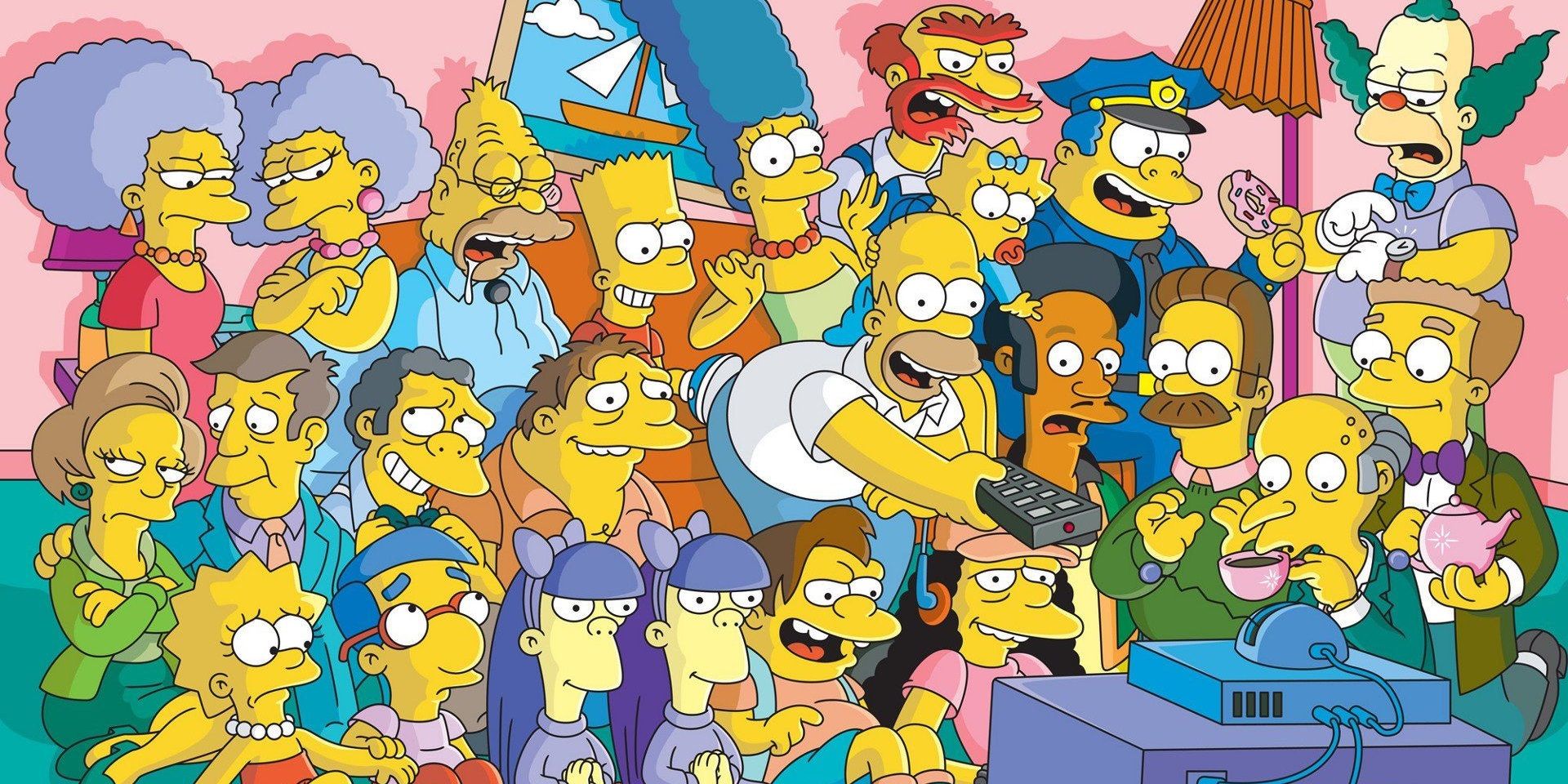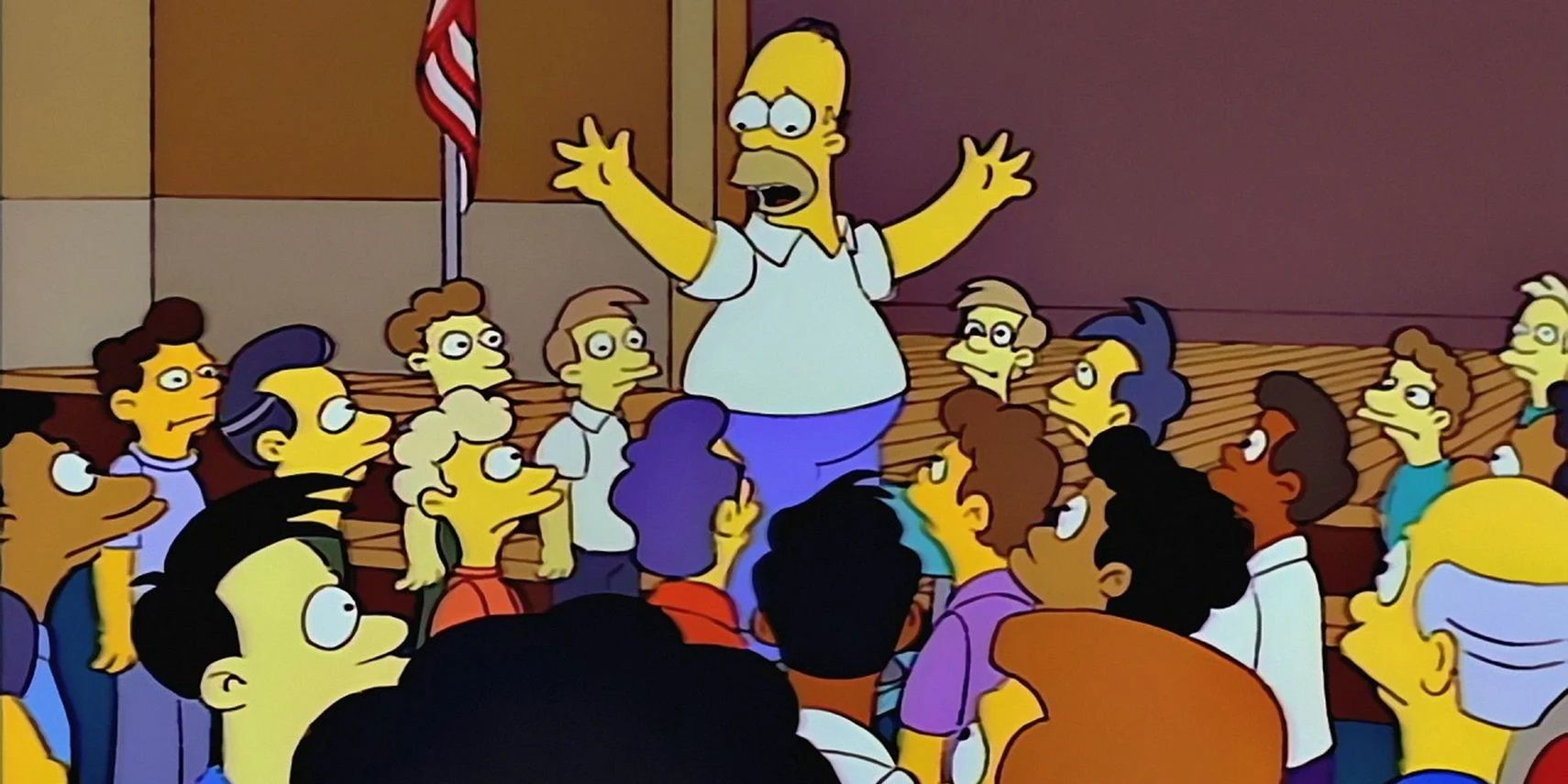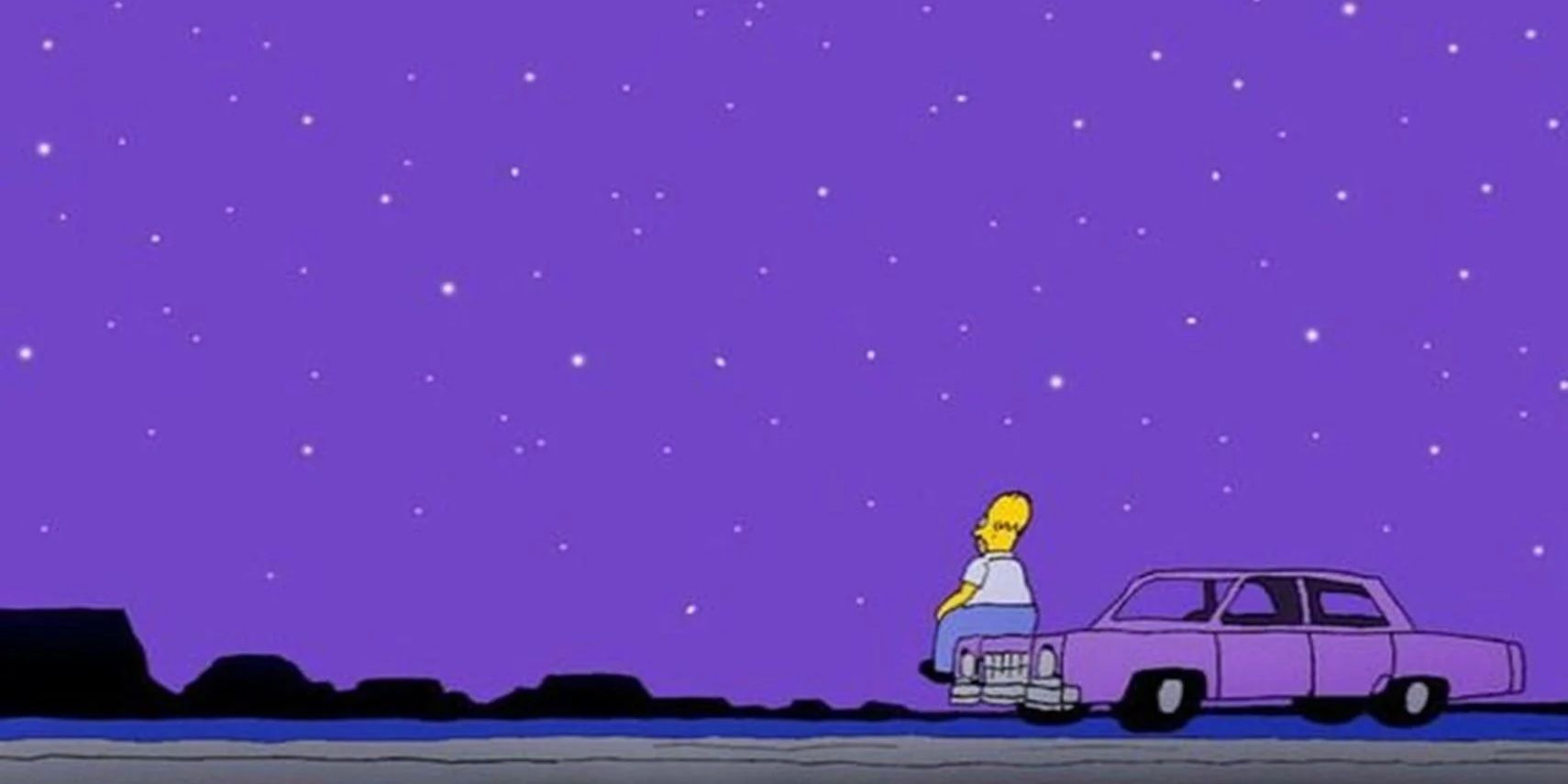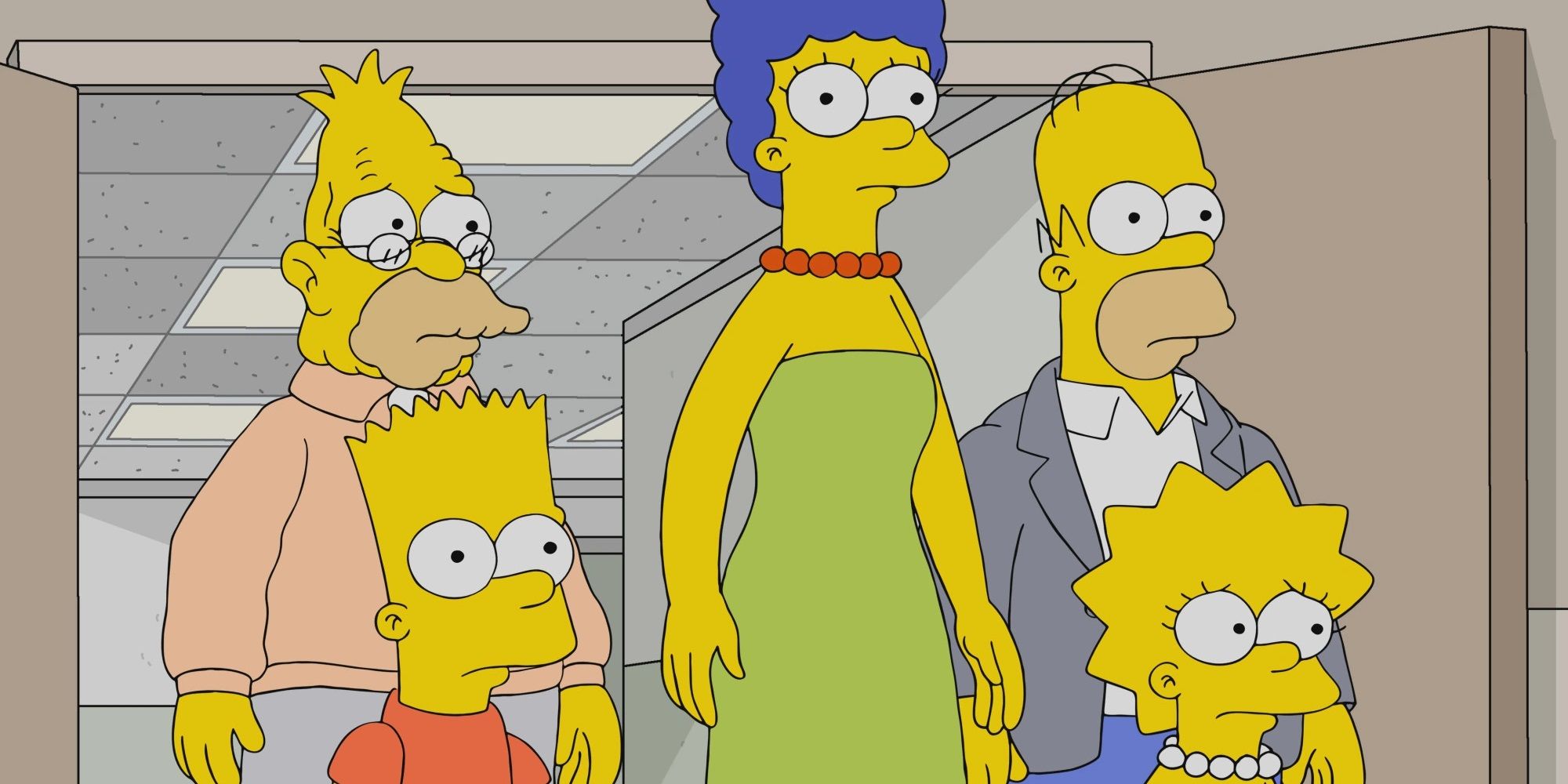Matt Groening’s monster hit The Simpsons, one of the most groundbreaking shows in the history of television, is charging into its mid-30s with yet another lackluster season full of uninspired, borderline unwatchable episodes. A show that once packed in a timeless laugh-out-loud moment every couple of seconds is now lucky if it gets one or two genuine belly laughs a year. A few seasons back, the writers dedicated a whole episode to the origin story of Moe’s bar rag. The Simpsons seems to just be continuing because it makes the network enough money to justify its existence and it’s too late to conclude the series in a way that’s truly meaningful.
Disney will want to see some return on its recent investment in the Simpson-verse and the show has already squandered a great series finale – season 23’s “Holidays of Future Passed” – so it’ll probably stay on the air indefinitely, cranking out derivative storylines filled with tired gags that barely manage to raise a smile. Perhaps the most egregious thing about modern-day Simpsons episodes is that the writers keep retconning the old classics to generate misconceived premises.
The season 33 premiere digs into Marge’s hitherto-unseen background as a theater kid in high school. The fact that Marge was a stage manager in high school isn’t too much of a stretch, but it’s never been established that Barney, Smithers, Lenny, Kirk Van Houten, and Helen Lovejoy were all classmates of hers – and the ages don’t seem to line up, either. Barney is depicted as a teenage alcoholic, ignoring the hilarious flashback in which Homer gives a Harvard-bound Barney his first beer the night before the SATs. It’s one thing that The Simpsons keeps going despite having devolved into a shadow of its legendary former self, but now it’s undoing its own iconic legacy.
Golden-Age Simpsons Episodes Are Both Sweet And Cynical
The so-called “golden age” of The Simpsons combined cynical satire that was genuinely biting with sweet, sappy sentimentality that was genuinely moving. “Lisa the Beauty Queen” pokes fun at beauty pageants, but it’s really about Lisa’s self-image. “Lisa the Greek” lampoons the superstition surrounding gambling, but it’s really about Homer learning to appreciate spending time with his daughter. “Lisa on Ice” is a spoof of sports rivalries, but it’s really about how Bart and Lisa love each other despite their constant fighting (like most siblings). In newer episodes, the satire is too soft-edged and the emotional beats are uninspired and unengaging.
For years, The Simpsons was hailed as one of the smartest satires on television, managing to cut as deep as South Park without the extra vocabulary and leeway for graphic imagery allowed to Trey Parker and Matt Stone. But it was also one of the sweetest shows on TV, with a ton of beautiful dramatic moments that still hit fans in the feels today. “Mother Simpson” doesn’t end on a joke; after Homer’s mom bids him farewell and leaves, he sits on his car and looks up at the stars. In “Lisa’s First Word,” Homer puts Maggie to bed and she becomes the first Simpson child to say “Daddy” as their first word. In “Marge Be Not Proud,” Marge is dismayed when she thinks she’s caught Bart shoplifting for a second time – but he’s actually bought her a thoughtful Christmas gift.
Season 7’s “Lisa the Vegetarian” strikes this half-savage, half-sappy tone beautifully. After meeting an adorable lamb at a petting zoo and being served lamb chops later in the evening, Lisa decides she can no longer consume animal products and turns to vegetarianism. At the same time, Homer is planning a big, bad barbecue for the whole town. It’s an incisive takedown of both sides of the argument, satirizing both the barbarity of the meat industry and the preachiness of the vegetarian community. The satirical side of the episode ultimately carries the message that vegetarianism is a moral choice and should be encouraged, although everybody should have the freedom to make that decision for themselves. But this is all just gravy on top of a heartwarming father-daughter story about Homer and Lisa butting heads, falling out, and eventually making up.
The success of The Simpsons was that the Simpsons themselves felt like a real family. Homer is far from the best husband and father, but his heart is in the right place. Marge is frustrated by Bart’s bad behavior, but she loves her “special little guy.” Homer’s limited intellect keeps him at arm’s length from his ingenious eight-year-old daughter, but he always does his best to connect with Lisa. These authentic family dynamics are missing from modern episodes. They’re not a real, relatable family anymore; they’re just five Disney I.P.s pumping out new content.
Modern-Day Simpsons Episodes Are Neither
Whereas classic Simpsons episodes have both biting commentary and shameless schmaltziness in spades, the recent installments rarely have any of either. Today’s Simpsons writing staff will center an episode around a contemporary topic like billionaires or A.I. or social media, but the jokes will just make bland, middle-of-the-road references without really exploring the how or why. The golden-age staff would really sink their teeth into their chosen satirical subject matter and address every side of a complex hot-button issue. The last dregs of The Simpsons’ sharp satire can be seen in season 9 with the cult episode “The Joy of Sect” and the gun ownership episode “The Cartridge Family.”
All the best emotional storylines have already been told. The dramatic moments in modern episodes feel cheap and unearned, because they simply rehash a classic story arc from the golden age (i.e. Homer lets Lisa down and has to make up for it) and put a new hat on it, Malibu Stacy-style. In its heyday, The Simpsons was a show that could make fans laugh and cry. More than three decades into its run, that magic is long gone and the new writers are more likely to make fans cry from going an entire half-hour without laughing once.




